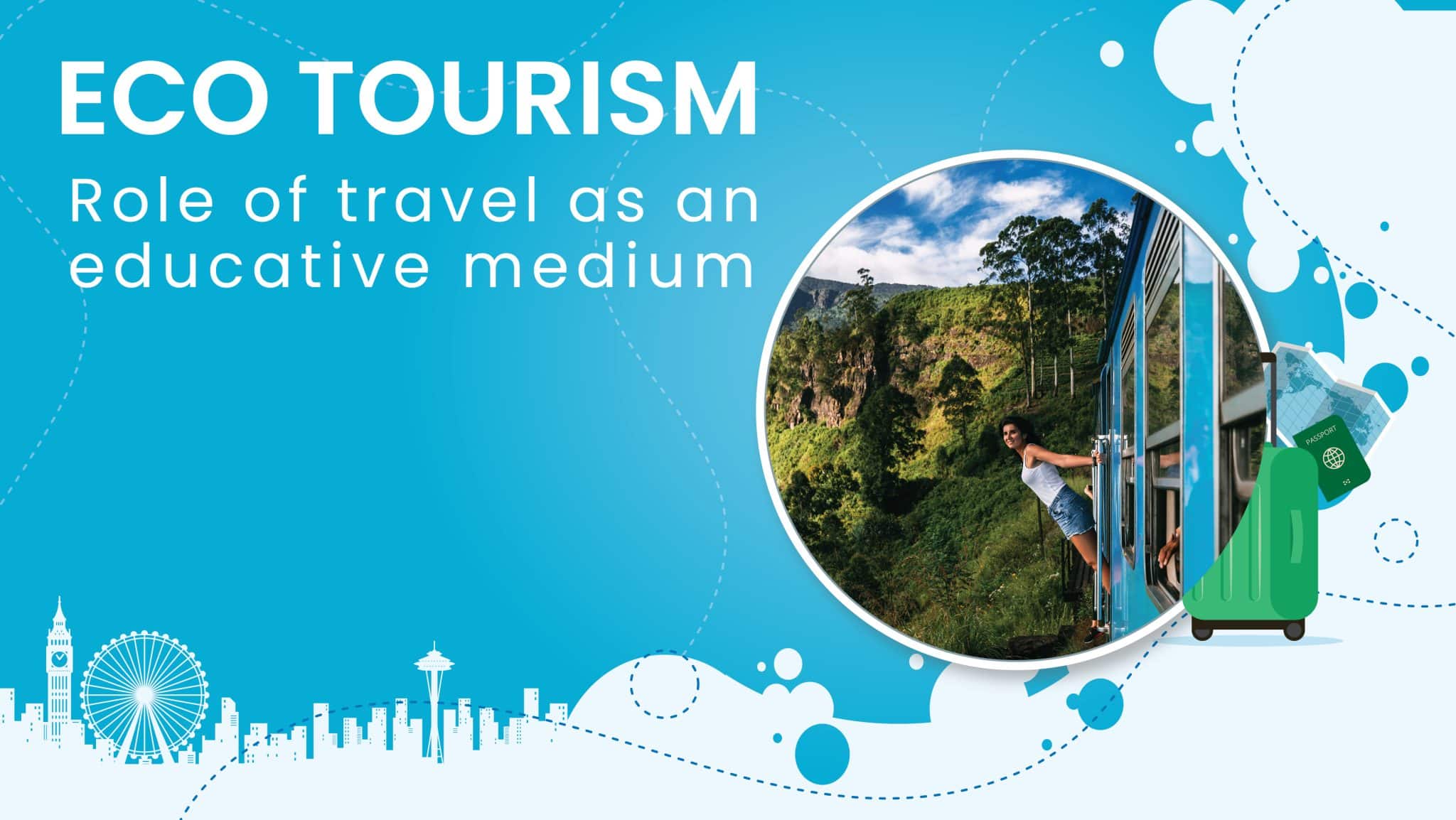Blog
Eco Tourism-Role of travel as an educative medium

“Blessed are the curious for they shall have adventures.” – Lovelle Drachman
Ecotourism is a type of sustainable tourism that focuses on preserving natural environments and promoting the well-being of local communities. It originated in the late 1980s and early 1990s as a response to the negative impacts of mass tourism on natural environments and local communities. The term “ecotourism” was first used in the late 1980s by Hector Ceballos-Lascurain, a Mexican ecologist and conservationist, who defined it as “responsible travel to natural areas that conserves the environment and improves the well-being of local people.”
The International Ecotourism Society (TIES) was established in 1990 and the United Nations designated 2002 as the International Year of Ecotourism to raise awareness about the importance of sustainable tourism. Ecotourism has since become a global phenomenon and is now a popular form of tourism in many countries around the world.
What is the status of ecotourism in India?
Ecotourism has been gaining popularity in India in recent years, but the overall status of ecotourism in the country is still relatively underdeveloped compared to other countries.
India has a rich biodiversity and many natural landscapes, such as forests, mountains, beaches, and wetlands, that are well-suited for ecotourism. However, ecotourism development in India has been hindered by a lack of infrastructure, limited government support, and a lack of awareness about the importance of sustainable tourism among local communities and tourists.
Additionally, it is still primarily focused on wildlife tourism, while opportunities in other areas such as cultural and community-based ecotourism have been less explored.
Recently, the government has recognized the importance of ecotourism in conserving biodiversity and promoting sustainable development and has made efforts to promote it. The Ministry of Tourism has launched several initiatives to promote ecotourism, such as the development of eco-friendly accommodations and the promotion of sustainable tourism practices. It could also be a valuable tool for educating tourists about environmental and cultural issues and promoting understanding and respect for local communities and their way of life.
Pointers for a tourist when choosing an eco-tourist destination?
When choosing an ecotourism destination, tourists should consider the following pointers:
- Sustainability: Look for destinations that have been certified by reputable organizations, such as the Rainforest Alliance or the Global Sustainable Tourism Council, as they have been audited and found to meet certain sustainability standards.
- Environmental protection: Choose destinations that have protected areas, such as national parks or biosphere reserves, and that have been set up to conserve biodiversity and protect natural resources.
- Community involvement: Look for destinations where local communities are actively involved in the management and decision-making of ecotourism activities, and that promote the well-being of local communities.
- Responsible tourism practices: Choose destinations that promote environmentally friendly practices, such as the use of renewable energy, recycling, and waste management.
- Cultural sensitivity: Choose destinations that respect the local culture and customs, and that promote understanding and respect for local communities and their way of life.
- Ecological footprint: Look for destinations that have a minimal ecological footprint and that have a good track record of conservation and sustainable development.
- Ecotourism activities: Choose destinations that offer a wide range of ecotourism activities, such as hiking, bird watching, wildlife safari, and cultural tours that are in harmony with the natural environment and local culture.
Review and feedback: Read reviews and feedback from other tourists who have visited ecotourism destinations. This will give a good idea of the quality of the ecotourism experience and the level of sustainability.

By considering these pointers, tourists can make an informed decision about where to go and how to travel responsibly, and thus contribute to the conservation of biodiversity and the promotion of sustainable development

Role of students in responsible traveling:
It is a responsible way for college students to travel and learn about different cultures and ecosystems while also supporting conservation efforts.
- College students can promote ecotourism by choosing to stay in eco-friendly accommodations, participating in sustainable activities, and supporting local businesses.
- They can also spread awareness about the importance of ecotourism by sharing their experiences and educating others about the impact of tourism on the environment.
- Additionally, students can get involved in volunteering and conservation projects in the destinations they visit to contribute to the protection of natural resources.
- Overall, ecotourism is a great way for college students to travel responsibly and make a positive impact on the environment and local communities.
There are several projects that college students can participate in to better understand ecotourism:
- Research: Students can research different ecotourism destinations and evaluate their sustainability practices, as well as the impact of tourism on the local environment and community.
- Volunteer work: Can get involved in conservation projects in ecotourism destinations, such as reforestation, wildlife monitoring, or beach clean-ups.
- Field trips: Can visit ecotourism destinations and learn first-hand about the benefits and challenges of sustainable tourism.
- Business projects: Can develop a business plan for an eco-friendly accommodation or tour operator, or create a marketing campaign for an ecotourism destination.
- Community engagement: Can work with local communities in ecotourism destinations to understand the impact of tourism on the community and to develop sustainable tourism plans.
- Blogging, Vlogging, and Social Media Campaign: Can create a blog, vlog, podcast, or social media campaign to share their experiences and educate others about the importance of ecotourism.
- Policy and advocacy: Can research and analyze the policies and regulations that govern ecotourism and advocate for sustainable tourism practices.
These projects can be done individually or in groups and can be part of coursework or extracurricular activities.
Moving from traditional classroom methodology to such experience-based projects always wins the interest and the productive quality of students. This nudges them to go all out to bring back a fine project and a kitty of experiences.
New Horizon Engineering College endeavors to encourage such a practical way of learning and empowering a student’s holistic development.


